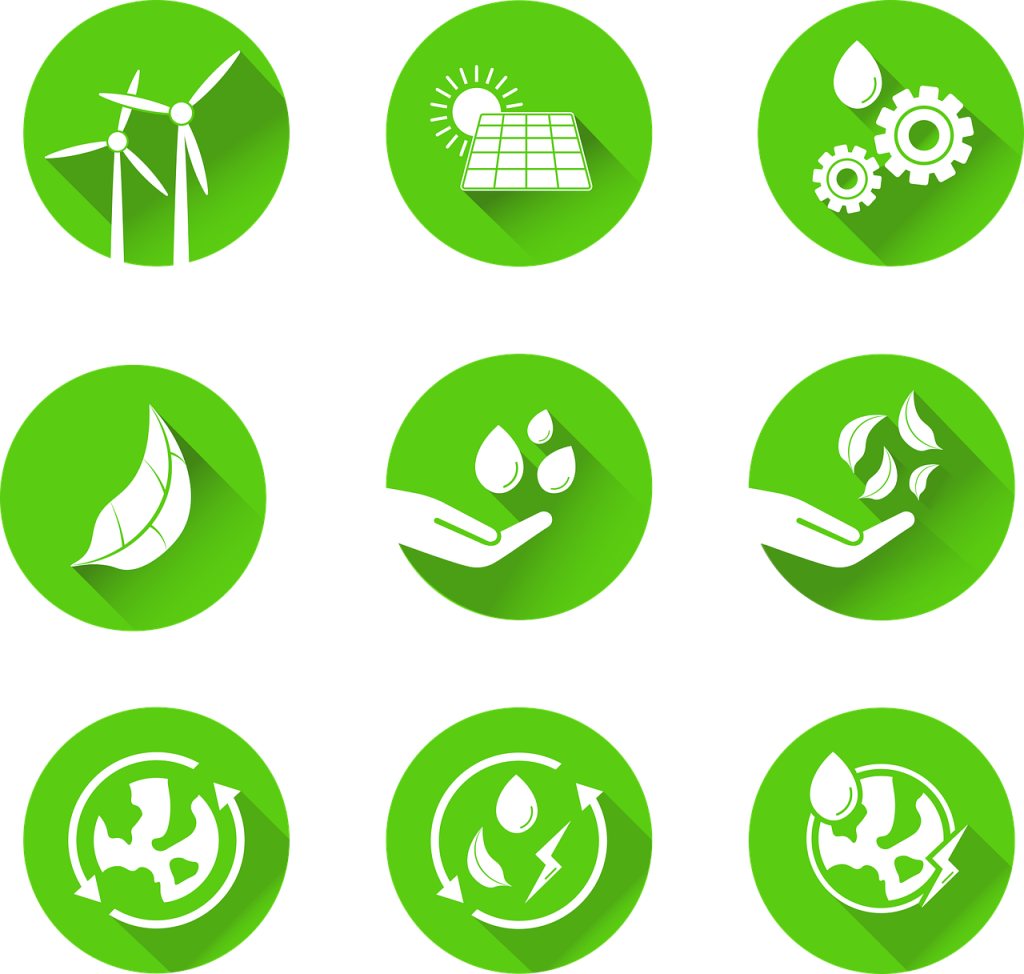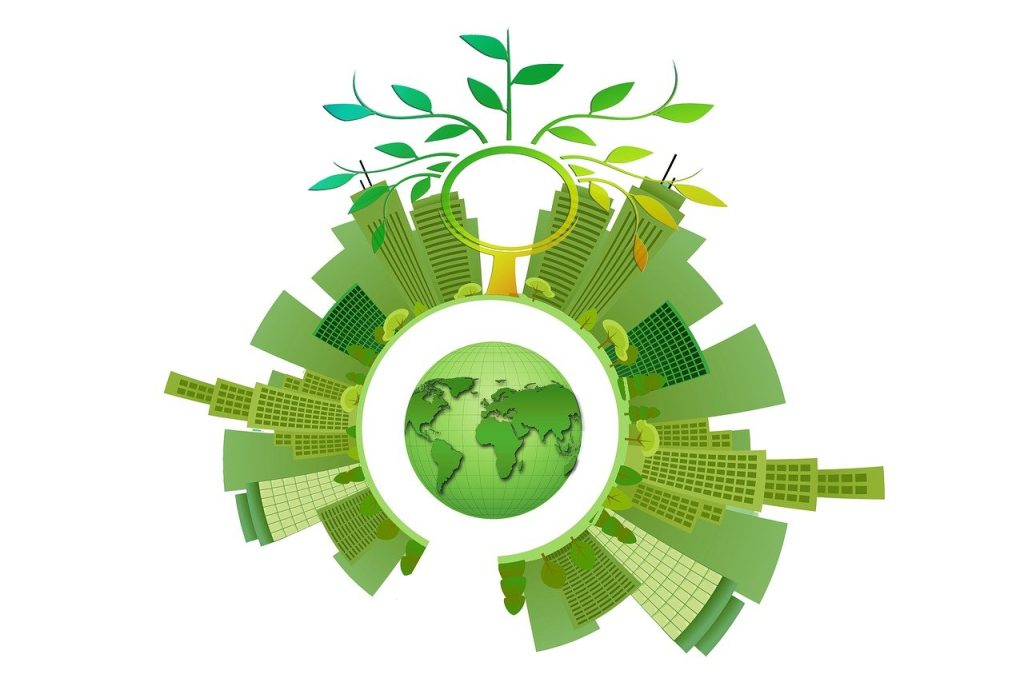So, you’re looking for a way to develop a stronger sense of environmental responsibility? Well, you’re in luck! This article is here to show you just how fostering such a mindset can make a real difference in the world around you. By exploring the ways in which taking care of the environment can benefit both individuals and society as a whole, you’ll be inspired to take action and contribute to a healthier, more sustainable future. So, let’s jump right in and discover how you can start making a positive impact today!

Understanding Environmental Responsibility
Defining environmental responsibility
Environmental responsibility refers to the duty that individuals, organizations, and society as a whole have to protect and preserve the natural environment. It involves recognizing the impact of human activities on ecosystems and taking proactive measures to minimize negative effects. This includes being mindful of resource consumption, reducing pollution, mitigating climate change, and promoting the overall health and biodiversity of our planet.
The importance of environmental responsibility
Environmental responsibility is crucial for the well-being of our planet and future generations. It helps prevent the depletion of natural resources, reduce pollution levels in the air, water, and soil, and mitigate the effects of climate change. By being environmentally responsible, we can also improve public health by reducing exposure to harmful pollutants and toxins. Additionally, promoting the preservation of biodiversity ensures the survival of various plant and animal species and maintains the delicate balance of ecosystems.
The role of individuals and society
Both individuals and society as a whole play a significant role in fostering environmental responsibility. By adopting sustainable practices in our daily lives, such as conserving energy and water, reducing waste, and making eco-friendly choices, we can contribute to the overall well-being of the environment. Additionally, society can promote environmental responsibility through education, awareness campaigns, and the implementation of policies that encourage sustainable practices. It is through collective action and collaboration that we can make a meaningful impact on the environment.
Benefits of Fostering Environmental Responsibility
Preservation of natural resources
One of the major benefits of fostering environmental responsibility is the preservation of natural resources. By using resources efficiently and responsibly, we can ensure their availability for future generations. This involves practices such as reducing water consumption, promoting sustainable agriculture, and implementing effective forestry management. By preserving natural resources, we maintain a thriving ecosystem and sustainable development.
Reduction of pollution
Environmental responsibility also leads to a significant reduction in pollution levels. By implementing measures to reduce air, water, and soil pollution, we can minimize the adverse effects on human health and ecosystems. This includes adopting cleaner energy sources, implementing stricter regulations on industrial emissions, and promoting sustainable transportation options. Reducing pollution not only benefits the environment but also improves the quality of life for all living beings.
Mitigation of climate change
Climate change is a pressing global issue, and fostering environmental responsibility is crucial in its mitigation. By reducing greenhouse gas emissions through the adoption of renewable energy sources, energy-efficient technologies, and sustainable practices, we can limit the impact of climate change. This includes promoting awareness about the importance of carbon footprint reduction and supporting international efforts to combat climate change. Mitigating climate change is essential for the preservation of our planet and the well-being of future generations.
Improvement of public health
Environmental responsibility directly contributes to the improvement of public health. By reducing pollution levels, we can decrease the incidence of respiratory and cardiovascular diseases, as well as other health issues associated with environmental exposure. Additionally, by promoting sustainable agriculture and reducing the use of harmful pesticides and fertilizers, we can ensure the production of safe and nutritious food. The improvement of public health is a vital aspect of environmental responsibility that benefits individuals and communities on a global scale.
Enhancement of biodiversity
Another significant benefit of fostering environmental responsibility is the enhancement of biodiversity. By preserving habitats, protecting ecosystems, and promoting sustainable practices, we can maintain a diverse range of plant and animal species. Biodiversity is essential for the stability and resilience of ecosystems, as it ensures the presence of various natural resources and supports the ecological balance. By fostering environmental responsibility, we can contribute to the preservation of biodiversity and safeguard the future of our planet.
Education and Awareness
Environmental education in schools
Environmental education plays a crucial role in fostering environmental responsibility. By introducing environmental topics and concepts in schools, we can create awareness among students about their role in protecting the environment. Environmental education helps students develop an understanding of the importance of sustainable practices, conservation, and the impact of human activities on ecosystems. It encourages critical thinking and empowers students to become responsible stewards of the environment.
Promotion of sustainability programs
To foster environmental responsibility, it is essential to promote sustainability programs in various sectors. This includes implementing initiatives in businesses, government agencies, and non-profit organizations that advocate for sustainable practices. Sustainability programs can focus on areas such as energy efficiency, waste management, and resource conservation. By promoting these programs, we can encourage individuals and organizations to adopt environmentally responsible practices and make a positive impact on the environment.
Engaging the public through campaigns and initiatives
Engaging the public through campaigns and initiatives is an effective way to raise awareness and promote environmental responsibility. These campaigns can focus on topics such as recycling, reducing single-use plastics, or conserving water. By utilizing various communication channels, such as social media, public events, and educational campaigns, we can reach a wider audience and encourage behavior change. Engaging the public creates a sense of collective responsibility and empowers individuals to contribute to a more sustainable future.
Government Policies and Regulations
Enforcement of environmental laws
Enforcement of environmental laws is crucial for promoting environmental responsibility. Governments play a significant role in developing and implementing regulations that protect the environment and ensure sustainable practices. This includes monitoring industrial activities, waste management, and pollution control. By enforcing environmental laws, governments can hold individuals and organizations accountable for their actions and promote environmentally responsible behavior.
Incentives for eco-friendly practices
Governments can also provide incentives for eco-friendly practices to encourage environmental responsibility. This can be done through tax credits, grants, or subsidies for renewable energy projects, energy-efficient technologies, and sustainable business practices. By providing financial incentives, governments can stimulate the adoption of environmentally responsible practices and create a more sustainable economy. Incentives also promote innovation and encourage individuals and businesses to invest in environmentally friendly solutions.
Creation of protected areas and conservation zones
Creating protected areas and conservation zones is essential for the preservation of biodiversity and ecosystems. Governments can establish national parks, wildlife reserves, and marine protected areas to safeguard vulnerable habitats and species. By designating these areas, governments ensure the long-term conservation of natural resources and provide opportunities for research, education, and ecotourism. The creation of protected areas is a significant step towards environmental responsibility and the preservation of our natural heritage.
Collaboration with international organizations
Collaboration with international organizations is vital for addressing global environmental challenges. Governments can work together with international bodies such as the United Nations and environmental organizations to develop and implement strategies for environmental responsibility. This collaboration can involve sharing best practices, funding research initiatives, and promoting global agreements, such as the Paris Agreement on climate change. By working together, governments can make a greater impact on environmental issues and ensure the sustainability of our planet.

Corporate Social Responsibility
Adopting sustainable business practices
Corporate social responsibility (CSR) involves businesses taking responsibility for their impact on society and the environment. By adopting sustainable business practices, companies can minimize their ecological footprint and contribute to environmental responsibility. This can include implementing energy-efficient technologies, reducing waste through recycling and proper waste management, and promoting sustainable supply chains. By integrating environmental considerations into their operations, businesses can align their activities with the goals of sustainability and promote a more responsible approach to business.
Reducing carbon footprint
Reducing carbon footprint is a key aspect of corporate environmental responsibility. Companies can achieve this by implementing measures to decrease greenhouse gas emissions in their operations. This can include investing in renewable energy sources, improving energy efficiency, and adopting low-carbon transportation options. By reducing their carbon footprint, businesses can contribute to mitigating climate change and demonstrate their commitment to environmental responsibility.
Implementing recycling and waste management programs
Proper waste management and recycling programs are essential for corporate environmental responsibility. Businesses can implement strategies to reduce waste generation, recycle materials, and dispose of waste responsibly. This can involve setting up recycling stations, educating employees about waste segregation, and partnering with recycling facilities. By implementing effective waste management programs, companies can minimize the environmental impact of their operations and promote a circular economy.
Supporting environmental initiatives and organizations
Corporate social responsibility also involves supporting environmental initiatives and organizations. Companies can contribute to environmental responsibility by providing financial support, resources, or volunteering time to projects that benefit the environment. This can include funding reforestation efforts, conservation programs, or research initiatives focused on sustainable development. By supporting environmental initiatives, businesses can make a positive contribution to society while aligning their values with environmental responsibility.
Individual Actions for Environmental Responsibility
Conservation of energy and water
Individuals can make a significant impact on environmental responsibility by conserving energy and water in their daily lives. This can be achieved through simple actions such as turning off lights when not in use, using energy-efficient appliances, and reducing water consumption. By being mindful of energy and water usage, individuals can contribute to the overall sustainability of resources and reduce their ecological footprint.
Reducing, reusing, and recycling
The 3R’s – reducing, reusing, and recycling – are fundamental actions for environmental responsibility. By reducing the consumption of single-use items, reusing materials whenever possible, and recycling waste, individuals can significantly reduce the amount of waste that ends up in landfills. These actions conserve resources, minimize pollution, and promote a more sustainable approach to resource management.
Making eco-friendly purchasing choices
Individuals can exercise environmental responsibility by making eco-friendly purchasing choices. This can involve buying products made from sustainable materials, supporting local and organic food production, and choosing environmentally friendly cleaning and personal care products. By choosing products with minimal environmental impact, individuals can contribute to a more sustainable supply chain and encourage businesses to adopt environmentally responsible practices.
Participating in community clean-up efforts
Engaging in community clean-up efforts is a proactive way for individuals to promote environmental responsibility. By volunteering time to clean up parks, beaches, or other natural areas, individuals can help remove litter and restore the beauty of these spaces. This not only improves the immediate environment but also raises awareness about the importance of responsible waste disposal and encourages others to take action.

Technological Innovations
Development of renewable energy sources
Technological innovations have played a significant role in advancing renewable energy sources. Solar, wind, hydroelectric, and geothermal energy are among the sustainable alternatives to fossil fuels. The development and improvement of these technologies have made renewable energy more accessible and affordable. By transitioning to renewable energy sources, we can significantly reduce carbon emissions and mitigate the effects of climate change.
Advancements in green transportation
Advancements in green transportation technologies have the potential to transform the way we travel and reduce our environmental impact. Electric vehicles, hybrid cars, and improved public transportation systems contribute to lower carbon emissions and improved air quality. These advancements, coupled with the development of sustainable infrastructure and transportation networks, offer a more environmentally friendly alternative to conventional transportation methods.
Smart technologies for sustainable living
Smart technologies, such as home automation systems and energy-efficient appliances, are key contributors to sustainable living. By incorporating sensors, smart grids, and energy management systems into homes and buildings, individuals can optimize energy consumption, reduce waste, and lower their ecological footprint. Smart technologies enable more efficient use of resources and provide individuals with real-time data to make informed decisions on their environmental impact.
Collaboration and Partnerships
Government and nonprofit collaborations
Collaboration between governments and nonprofit organizations is crucial for effective environmental responsibility. Governments can collaborate with nonprofits to leverage their expertise and resources in implementing environmental initiatives. This can involve partnerships for conservation projects, educational campaigns, and policy development. By working together, governments and nonprofits can achieve their shared goal of promoting environmental responsibility.
Public-private partnerships
Public-private partnerships (PPPs) are effective mechanisms for driving sustainable development and environmental responsibility. These partnerships involve collaboration between the public sector, private companies, and civil society organizations to address environmental challenges. PPPs can fund and implement projects such as renewable energy infrastructure, waste management systems, and conservation programs. By leveraging the strengths and resources of each sector, PPPs can make a significant impact on environmental sustainability.
International cooperation for global impact
International cooperation is essential for addressing global environmental challenges and promoting environmental responsibility on a global scale. Countries can collaborate through international agreements, treaties, or forums to develop strategies and share best practices. This includes sharing knowledge and resources to address issues such as climate change, biodiversity loss, and pollution. By working together, countries can create a collective impact and ensure a sustainable future for all nations.
Challenges and Solutions
Overcoming resistance to change
One of the main challenges to fostering environmental responsibility is overcoming resistance to change. People may be hesitant to adopt new behaviors and practices due to factors such as lack of awareness, convenience, or resistance to breaking established habits. To address this challenge, education and awareness campaigns are crucial. By providing information, highlighting the benefits of environmental responsibility, and showcasing successful case studies, we can inspire individuals to embrace change and make sustainable choices.
Addressing economic barriers
Economic barriers can hamper efforts towards environmental responsibility, particularly in developing countries or communities with limited resources. The initial costs of implementing sustainable practices or transitioning to renewable energy sources may be perceived as too high. To address this challenge, governments and organizations can provide financial assistance, grants, or loans to support environmentally responsible initiatives. By reducing economic barriers, we can ensure that sustainable practices are accessible to all, irrespective of their economic situation.
Promoting inclusivity and equity
Promoting inclusivity and equity is vital in fostering environmental responsibility. Environmental issues often disproportionately affect marginalized communities. It is important to address the social and economic factors that contribute to these disparities and ensure that environmental initiatives consider the needs and perspectives of all groups. By fostering inclusivity and equity, we can create a more just and sustainable future for all.
Encouraging long-term commitment
Sustaining long-term commitment to environmental responsibility is a challenge that requires continuous efforts and engagement. It is essential to promote the long-term benefits of environmental responsibility, such as improved quality of life, health benefits, and a sustainable future for generations to come. By regularly highlighting success stories, engaging in ongoing education and awareness campaigns, and providing incentives, we can encourage individuals, businesses, and governments to maintain their commitment to environmental responsibility.
The Future of Environmental Responsibility
Emerging trends and innovations
The future of environmental responsibility is likely to be driven by emerging trends and innovations. Advancements in technology, such as artificial intelligence, Internet of Things, and blockchain, have the potential to revolutionize sustainability practices. These innovations can streamline resource management, enable more efficient energy consumption, and provide real-time data for decision-making. Additionally, emerging trends such as circular economy, regenerative agriculture, and sustainable urban planning are expected to play a significant role in shaping the future of environmental responsibility.
Shifting societal attitudes
Societal attitudes towards environmental responsibility have been shifting in recent years, with increasing awareness and concern for the environment. More individuals are recognizing the need for sustainable practices and demanding action from governments and businesses. This shift in attitude is driving societal changes, such as the rise of the sharing economy, increased demand for eco-friendly products, and a focus on sustainable lifestyles. As these attitudes continue to evolve, they will play a critical role in shaping the future of environmental responsibility.
The role of younger generations
Younger generations, such as Millennials and Generation Z, are taking on a leading role in promoting environmental responsibility. They are driving sustainability initiatives, demanding greater transparency from businesses, and advocating for sustainable policies. The younger generation’s passion for environmental issues and their ability to mobilize through social media and digital platforms make them key drivers of change. Their involvement will continue to shape the future of environmental responsibility, ensuring a sustainable and resilient future.
Sustainable development goals
The United Nations’ Sustainable Development Goals (SDGs) provide a framework for global efforts towards environmental responsibility. The SDGs cover various aspects of sustainability, including climate action, clean energy, sustainable cities, and responsible consumption and production. Achieving these goals requires the collective action of governments, businesses, and individuals. By aligning our efforts with the SDGs, we can work towards a future where environmental responsibility is a global priority, ensuring a sustainable and inclusive world for all.
In conclusion, fostering a sense of environmental responsibility is essential for the well-being of our planet and future generations. By recognizing the importance of protecting the environment, we can preserve natural resources, reduce pollution, mitigate climate change, improve public health, and enhance biodiversity. This responsibility falls on individuals, businesses, governments, and society as a whole. Through education and awareness, government policies and regulations, corporate social responsibility, individual actions, technological innovations, collaboration and partnerships, and addressing challenges, we can work towards a sustainable future. The future of environmental responsibility lies in emerging trends and innovations, shifting societal attitudes, the role of younger generations, and the achievement of sustainable development goals. By embracing environmental responsibility, we can create a world where the well-being of the planet and its inhabitants is prioritized.










